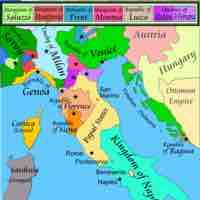Chapter 18
The Renaissance
By Boundless
Italian city-states trading during the late Middle Ages set the stage for the Renaissance by moving resources, culture and knowledge from the East.
Italian politics during the time of the Renaissance was dominated by the rising merchant class, especially one family, the House of Medici, whose power in Florence was nearly absolute.
The new humanist ideals of the Renaissance, although more secular in many aspects, developed against a Christian backdrop, and the Church patronized many works of Renaissance art.
Petrarch is often called the "Father of Humanism" both for his discovery of important classical texts and his personal commitment to the way of life found in ancient literature and philosophy.
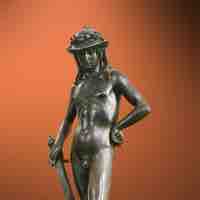
Humanism was an intellectual movement embraced by scholars, writers, and civic leaders in 14th century Italy.
Humanism played a major role in education during the Renaissance with the goal to cultivate the moral and intellectual character of citizens.
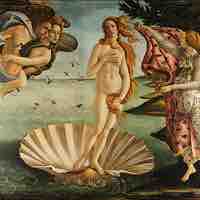
The art of the Italian Renaissance was influential throughout Europe for centuries.
The Medici family used their vast fortune to control the Florentine political system and sponsor a series of artistic accomplishments.
While Leonardo da Vinci is admired as a scientist, an academic, and an inventor, he is most famous for his achievements as the painter of several Renaissance masterpieces.
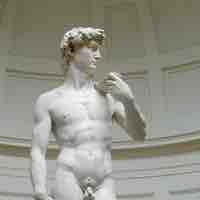
Michelangelo was a 16th century Florentine artist renowned for his masterpieces in sculpture, painting, and architectural design.
Mannerist artists began to reject the harmony and ideal proportions of the Renaissance in favor of irrational settings, artificial colors, unclear subject matters, and elongated forms.
Renaissance literature refers to European literature which was influenced by the intellectual and cultural tendencies of the Renaissance.
The 13th and 14th century Italian literary revolution helped set the stage for the Renaissance.
Christine de Pizan was an Italian French late medieval author who wrote about the positive contributions of women to European history and court life.
Renaissance philosopher Niccolò Machiavelli sought to describe political life as it really was rather than its philosophical ideal, as infamously portrayed in his text The Prince.
Erasmus of Rotterdam was a renowned humanist scholar and theologian who wrote several important texts criticizing the superstition and formalism of the Church while upholding its core spiritual values.
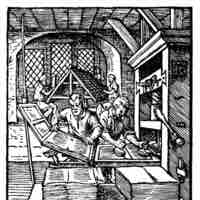
The invention of the printing press by Gutenberg led to the spread of mass communication across Europe in only a few decades.
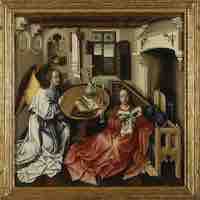
The Flemish School refers to artists who were active in Flanders during the 15th and 16th centuries.
